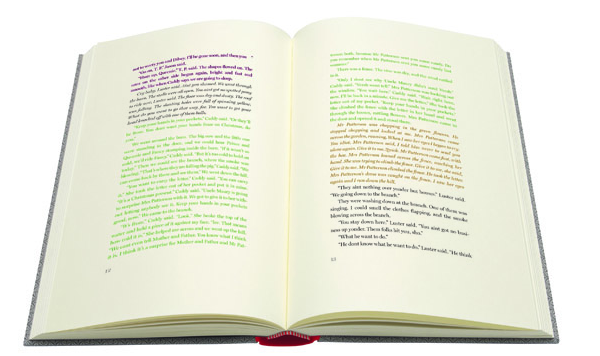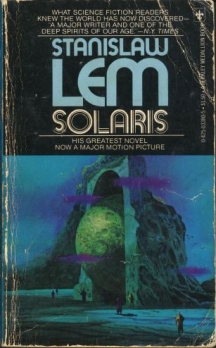Web Purchase Is The Purest Narrative

On my adventures in corporate American marketing, I’ve come across a literary form that I believe is the purest, most perfect expression of human desire, passion, tragedy, longing, comedy, and love. In modern user experience design and eCommerce, this form is known as “Call To Action.” In its most common form it’s a digital image of button, with copy. It appears at the end of a poem about a product. When you see the button, you understand everything that there is to understand about your relationship to capital markets, to objects, and to human labor. Shorter than the novel, more emotive than the poem, and far more popular than the TV serial, the CTA is certainly in a golden age.
Announcing Issue 7 of Requited
Requited is an online journal that I help edit. I’m pleased to announce that the seventh issue is now up. In the section that is my province (essays) you will find:
- Jeremy M. Davies on reading Gilbert Sorrentino;
- William Bowers on watching Spider-Man;
- & Curtis White on rethinking Freud and childhood sexuality.
There is also a review, by Daniel Green, of the book We Wanted to Be Writers: Life, Love and Literature at the Iowa Writer’s Workshop, edited by Eric Olsen and Glen Schaeffer (Skyhorse Publishing, 2011).
In the rest of the issue you will find:
- fiction by Maya Sonenberg, Hilary Plum, Eugenio Volpe, & Adam Moorad;
- poetry by Neal From, Christine Hamm, j/j hastain, Stephen Daniel Lewis, Amy Pence, Andrea Rexilius, Lina Ramona Vitkauskas, & Daniel Godston;
- excerpts from Calamari Press’s Ark Codex ±0;
- a performance text by Michael J Pagan;
- visual art by Mark Aguhar;
- a video by Dara Greenwald;
- & a comic by Dylan Williams.
Requited is edited by Amanda Marbais (fiction), H.V. Crammond (poetry), Ira S. Murfin (performance texts), Fereshteh Toosi (visual art and videos), and myself (essays and reviews). We publish two issues per year. Our complete archive is accessible here, and our submission guidelines are here. If you have any further questions or comments about the journal, I would be happy to receive them.
Enjoy Issue 7!
Faulkner in Color

In 1929, at the time of its publication, William Faulkner said “I wish publishing was advanced enough to use colored ink” in regards to his vision for The Sound and the Fury, specifically, that each of the many intricately layered timeline threads would be printed in different colors. He resigned to using italics in order to address the past, which was rather confusing, given the blunt binary of italics vs. roman text, and the myriad tiers of pasts therein. Reading Faulkner, I always ignore the italics, as part of the allure in reading him is the palpable confusion of memory — the contradictions, oversights, strange overlaps — as similar to the very way we remember, or mis-remember, our actual experiences. The initial modernists (e.g. Joyce, Woolf, Faulkner) seemed to imbue their books, inadvertently or not, with living matter: the tongue of alliteration; the pulse of cadence; the corrosive and unreliable mind; the insecurity of communication; the unruly heart, the very messy things though which we lived, rather than simply read. Eighty-three years since its publication, English publishing house Folio Society is publishing the book as the author intended. It’s gorgeous, $345 dollars, a promised delivery conveniently in the light of August.
Teaser Trailer for You Private Person by Richard Chiem
Directed by Meggie Green
Words by Richard Chiem
Music by Kale Ogle
YOU PRIVATE PERSON, Chiem’s first collection of short stories, is forthcoming from Scrambler Books (2012).
R.I.P. Carlos Fuentes. I just found out. He was one of the greats. Places to start if you haven’t read him: Where the Air Is Clear (1958), The Death of Artemio Cruz (1962), Terra Nostra (1975). & here he is on the BBC (audio), and here are various YouTube videos.
Godspeed, good sir.
Watching, owning, looking at, listening to, thinking about, and at last finally reading Solaris
 I adore Stanisław Lem. And for ages I’ve wanted to read his masterpiece Solaris (1961), but haven’t, even though I own a couple of beat-up mass paperback copies, because the only English translation available has been the Joanna Kilmartin and Steve Cox 1970 adaptation, which they “translated from the French”—from Jean-Michel Jasiensko’s 1966 translation—and which Lem himself purportedly disliked, and which my Polish friends have repeatedly told me is terrible, and which I’ve nonetheless tried to read on a number of occasions, but was never able to get more than a few pages into before I’d give up and instead rewatch Andrei Tarkovsky’s 1972 cinematic adaptation (which Lem also openly disliked; the man wasn’t afraid to voice his opinions). (And even with that film, it wasn’t until I saw Criterion’s 2002 DVD release that I realized how magnificent it was; the 1997 VHS release was washed out and split across two tapes, and I think even pan-and-scanned, rendering it pretty underwhelming.)
I adore Stanisław Lem. And for ages I’ve wanted to read his masterpiece Solaris (1961), but haven’t, even though I own a couple of beat-up mass paperback copies, because the only English translation available has been the Joanna Kilmartin and Steve Cox 1970 adaptation, which they “translated from the French”—from Jean-Michel Jasiensko’s 1966 translation—and which Lem himself purportedly disliked, and which my Polish friends have repeatedly told me is terrible, and which I’ve nonetheless tried to read on a number of occasions, but was never able to get more than a few pages into before I’d give up and instead rewatch Andrei Tarkovsky’s 1972 cinematic adaptation (which Lem also openly disliked; the man wasn’t afraid to voice his opinions). (And even with that film, it wasn’t until I saw Criterion’s 2002 DVD release that I realized how magnificent it was; the 1997 VHS release was washed out and split across two tapes, and I think even pan-and-scanned, rendering it pretty underwhelming.)
Today I noticed that there’s a new and direct translation of Solaris available, albeit only electronically (and as an audio book). It’s by Bill Johnston, “a professor of Comparative Literature at Indiana University.” (The audio book version is read by Alessandro Juliani, who I see played Lt. Felix Gaeta on Battlestar Galactica.) … So has anyone out there read it, or listened to it? (This new Solaris, not BG.) From what I can see online, it certainly looks more promising. Here’s Kilmartin/Cox:
At 19.00 hours, ship’s time, I made my way to the launching bay. The men around the shaft stood aside to let me pass, and I climbed down into the capsule. Inside the narrow cockpit, there was scarcely room to move. I attached the hose to the valve on my space suit and inflated it rapidly. From then on, I was incapable of making the smallest movement. There I stood, or rather hung suspended, enveloped in my pneumatic suit and yoke to the metal hull.
And here, by way of contrast, is the start of Johnston’s new edition:
At nineteen hundred hours ship’s time I climbed down the metal ladder past the bays on either side into the capsule. Inside, there was just enough room to raise my elbows. After I attached the end of the cables into the port jutting from the side of the capsule, my space suit filled with air and from that point on I couldn’t make the slightest movement. I stood, or rather hung suspended, in a bed of air, all of one piece with my metal shell.
Finally, while on the subject of Solaris, has anyone out there seen that other movie version that got made? You know—the one by Lidiya Ishimbayeva and Boris Nirenburg?
Thinking about all these different editions of Solaris got me wondering what the original Polish movie poster for Solaris looked like. If you’ve become curious as well, then wonder no longer:
Let’s talk about James Merrill
James Merrill died in Tucson. Tucson is a city where men walk around with Rottweilers and wheelbarrows. Sometimes inside the wheelbarrow will rest a console television. These men do not wear shirts.
Some writers were afraid of James Merrill. It’s like that time Dick Cavett interviewed Marlon Brando. (Go to 5:45 for some inspiring tension) Cavett was shaking. He was addled and rattled. He was overwhelmed by the Hugeness of this Thing, Brando.
Factoid: People think Calvin Cordozar Broadus, Jr. is all that, but James Merrill was the first to sing, “Come dusk lime juice and gin.”
Remember to remember!
James Merrill’s most famous quote is obviously, “Life is fiction in disguise.” I’m trying to decide if John Gardner would approve. Oh, fuck Gardner, man. I just realized Hemingway is always talking about how he doesn’t like to talk about writing, and even saying that is talking about writing and anyway Hemingway actually wrote and talked about writing all of the time. But I digress. Better quotes from Merrill would be, “I’ve watered the geraniums, the pot of basil + the pot of pot” or “If nobody ever wrote a book, do you imagine it would be possible to catch up?”
Or
Then I addressed to a closed door a little speech about how the Great Ideas, far from being the achievement of men of genius (or look what happens when they are—Nietzsche + Hitler, Einstein + Hiroshima), are the work of thousands of anonymous generations, and take the form of those brain-coral reefs, slow myths + taboos, which keep the shark from the shallows our children swim in, and now if you don’t mind I have taken a pill and must try to get some sleep.
One time James Merrill made a concrete poem in the shape of a Christmas tree. I find concrete poetry as sort of airbrush T-shirt level of entertainment.
Champagne. Mythology. Technical mastery. Memory. Atomic science. The big bang and black holes. Quatrains. Environmental degradation. Key West. AIDS. Neckties. Similes. Flashlights. Elizabeth Bishop. Small mirrors. The Piano. Good outdoor lighting (example, Peru). Waving through windows at people. O’Keeffe paintings. Dogs. A well-considered title.
I don’t like titles that applaud the author’s seriousness or whatever, titles like “Necessities of Life” or even, forgive me, “Responsibilities.”
Many lovers.
Sometimes, while rereading Changing Light at Sandover, the irony keeps me at a distance, but then again it might just be something I ate.
Factoid: You can say what you want about Dick Cavett, but in 1969 Jefferson Airplane sang on his show and it was the first time the word “fuck” was uttered on live television.
We’re going to spend a lot of our life alone in rooms.
Okay, so Derrick Rose will maybe never again play basketball like such a firefly, but that doesn’t mean you should stop believing in the triumph of the canny and soulful: for example, friend of the GIANT Heather Christle has won The Believer‘s 2011 Poetry Award for her book The Trees The Trees. Congratulations, Heather!


